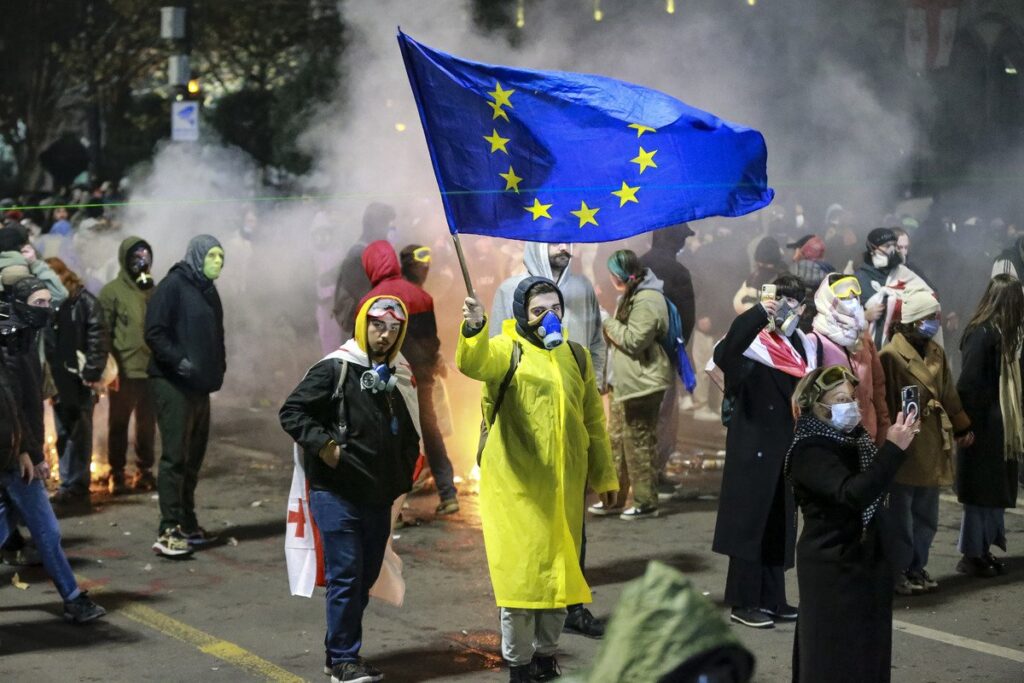Demonstrators Accuse Government of Backsliding on Democracy and Tilting Toward Russia

Widespread Unrest
Thousands rallied on Rustaveli Avenue in Tbilisi on Sunday night, demanding the government reverse its decision. Outside the capital, protesters blocked a key access road to the commercial port in the Black Sea city of Poti. Reports from Georgian media indicated protests in at least eight locations, including Khashuri, where opposition demonstrators threw eggs at Georgian Dream’s local office and tore down the party’s flag.
The unrest follows Thursday’s clash between pro-EU demonstrators and police armed with teargas and water cannons. The Interior Ministry confirmed that Saturday’s protests left 44 people hospitalized, including 27 protesters, 16 police officers, and a media worker.
In a symbolic act of defiance, demonstrators burned an effigy of Bidzina Ivanishvili, the billionaire founder of Georgian Dream with deep financial ties to Russia, in front of the Georgian legislature.
Government Response
Prime Minister Irakli Kobakhidze denied that the suspension of EU accession talks signaled a retreat from European integration. “The only thing we have rejected is the shameful and offensive blackmail, which was in fact a significant obstacle to our country’s European integration,” he said.
Kobakhidze warned that violations of the law would face “the full rigour of the law” and accused opposition leaders of inciting violence while avoiding responsibility.
International Criticism
The government’s decision came just hours after the European Parliament condemned the October 26 parliamentary election as neither free nor fair. EU officials, including foreign policy chief Kaja Kallas and enlargement commissioner Marta Kos, expressed deep concern over Georgia’s democratic backsliding and urged authorities to respect freedom of assembly and expression.
“This announcement marks a shift from the policies of all previous Georgian governments and the European aspirations of the vast majority of the Georgian people,” the officials said in a joint statement.
The EU granted Georgia candidate member status in December 2023, contingent on meeting democratic benchmarks. However, financial support was curtailed this year following the passage of a controversial “foreign influence” law widely regarded as repressive.
Opposition Claims and Russia’s Influence
The opposition has called for new elections, accusing Georgian Dream of rigging the October vote with Russian support to suppress the country’s EU aspirations. Pro-Western President Salome Zourabichvili, a vocal critic of the ruling party, warned that Georgia risked becoming a “quasi-Russian state,” citing Georgian Dream’s control over major institutions.
“We are not demanding a revolution. We are asking for new elections, but in conditions that will ensure that the will of the people will not be misrepresented or stolen again,” Zourabichvili said on Saturday.
Comments are closed.